Amateur boxing in England 'behind other disabled sports'
- Published
Friends Aaron and Marcus explain how boxing has changed their lives
Aaron Gilbert and Marcus Perrineau-Daley first met through boxing and say the sport has brought meaning to both their lives.
At the moment there's no way they can compete though, and the body which runs amateur boxing in England admits they're "behind other sports".
Both of them have suffered serious spinal injuries through accidents.
They're both partially paralysed, but that hasn't stopped them training alongside non-disabled fighters.
But at the moment it's as far as they will go.
"Just because we're in a wheelchair and we've suffered an injury, doesn't mean we should be restricted in competing in the sport that we love," says Marcus.
"As long as we're safe and the categories are equal and fair, I believe there should be no problem."
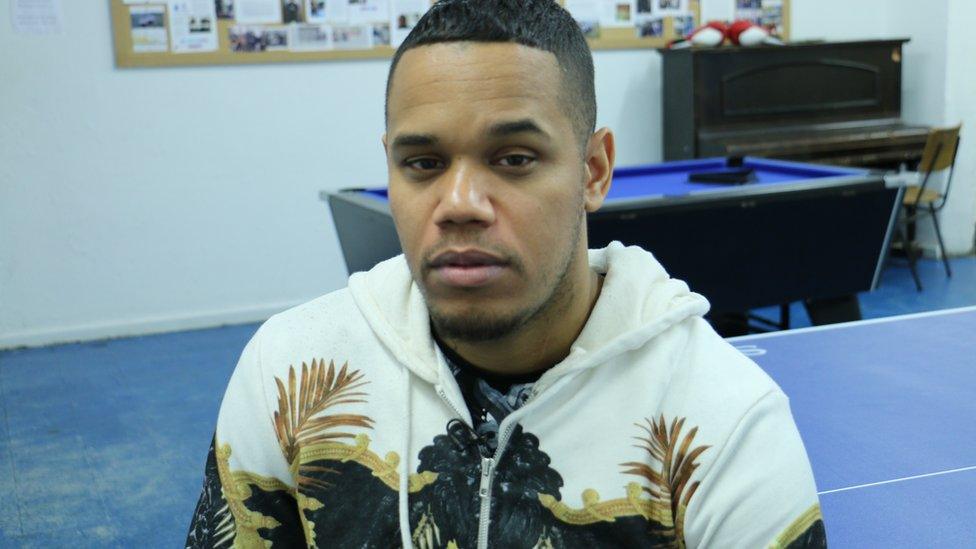
More than 10 years after his accident, Aaron says he still has anger issues
There's no structure in place at the moment which would allow them to take part in, what they call, a meaningful contest.
They've both been training at a club in south London.
"As much as it's good that we're doing this, we'd like to take it out on each other and get more competitive," says 32-year-old Aaron.
Aaron's life changed more than 10 years ago, when he was asleep in the back of a car after a night out.
"The driver must have got tired and fell asleep for a split second and drifted across the motorway and hit a lorry."
Aaron broke his neck in the impact. His friend in the front suffered brain damage but the driver was unhurt.
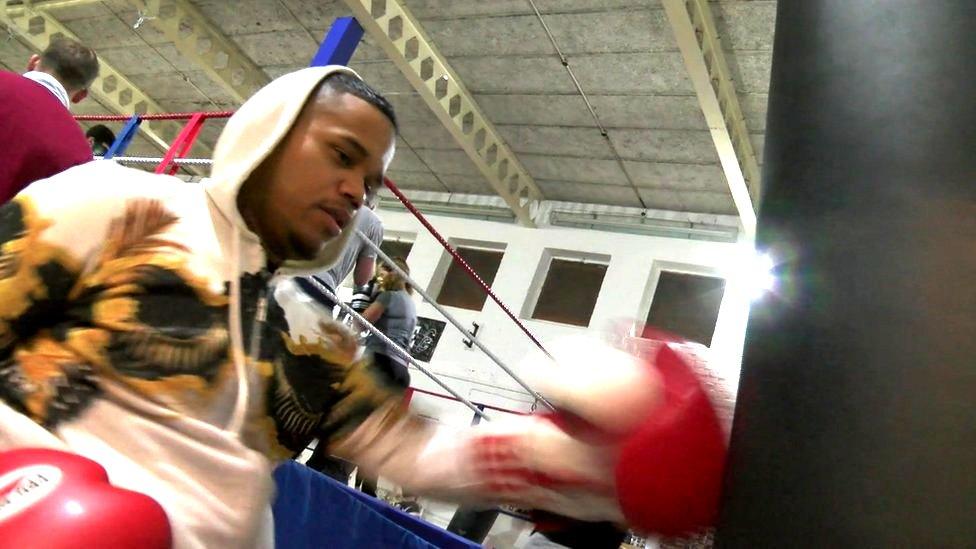
"The doctors told me what had happened, that I was paralysed from the neck down and that I wouldn't be able to do this and all that kind of stuff.
"But I refused to listen to it."
Years later a friend would take him to a boxing club.
"I hit the bag once, and it felt good. The frustration I got in myself, I could take out on the bags."
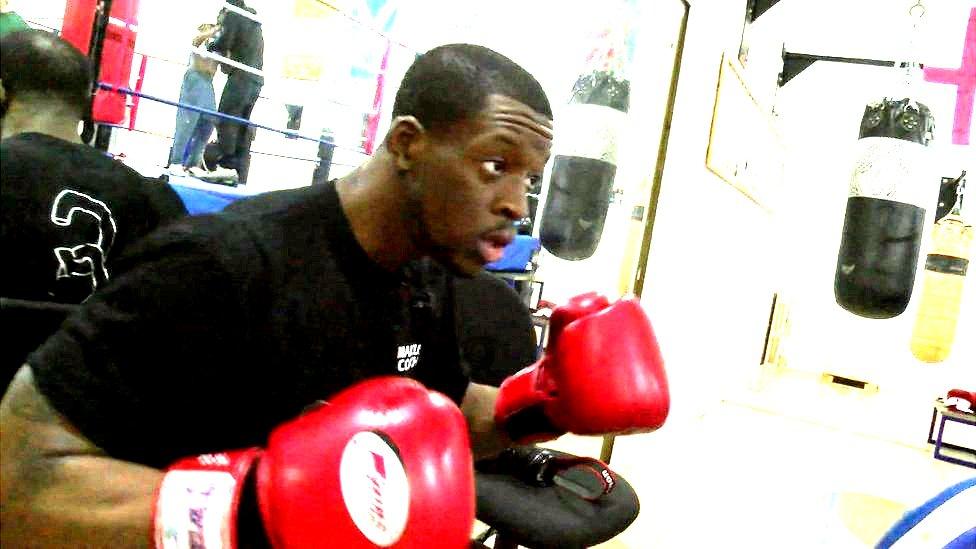
Marcus used to be into bodybuilding before his accident
19 October 2014 is a day Marcus Perrineau-Daley will never forget. He was riding his motorbike with friends through south London.
"As I've tried to overtake this pick-up truck, I haven't seen that I'm approaching a roundabout," he remembers.
"[At 90mph] I hit a curb and my neck went straight into a wooden sleeper. Lights out for me.
"All I can remember is waking up in hospital. Then I had a broken neck and back and won't walk again."
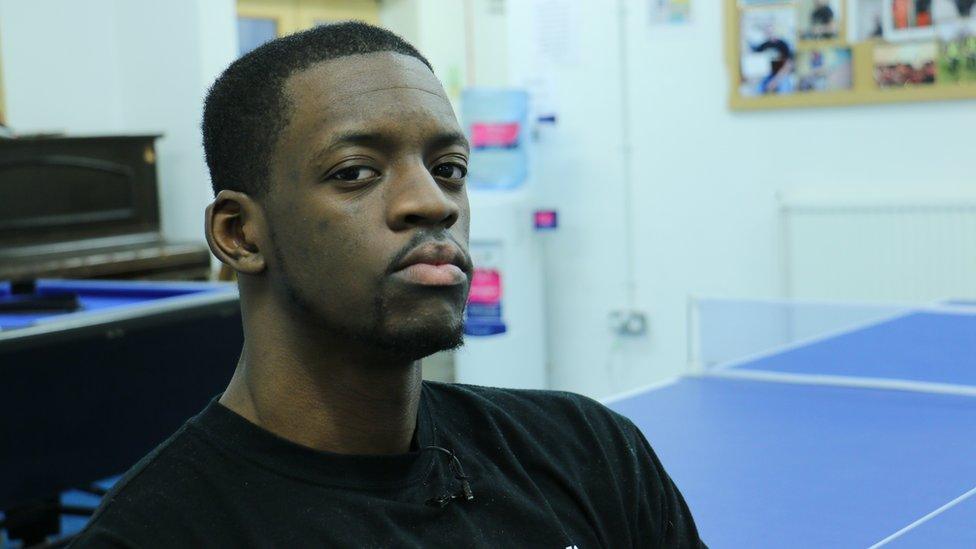
"The boxing has given me a way forward in life. It has given me even more hope. That we can get through things no matter what."
Now the pair want to take their rehab to a meaningful level, and fight someone in the same category as them.
"I'm delighted that they're using boxing as a discipline," says Ron Tulley, who's the head of development at England Boxing.
At the moment they say there aren't enough disabled boxers to fight with competitively.
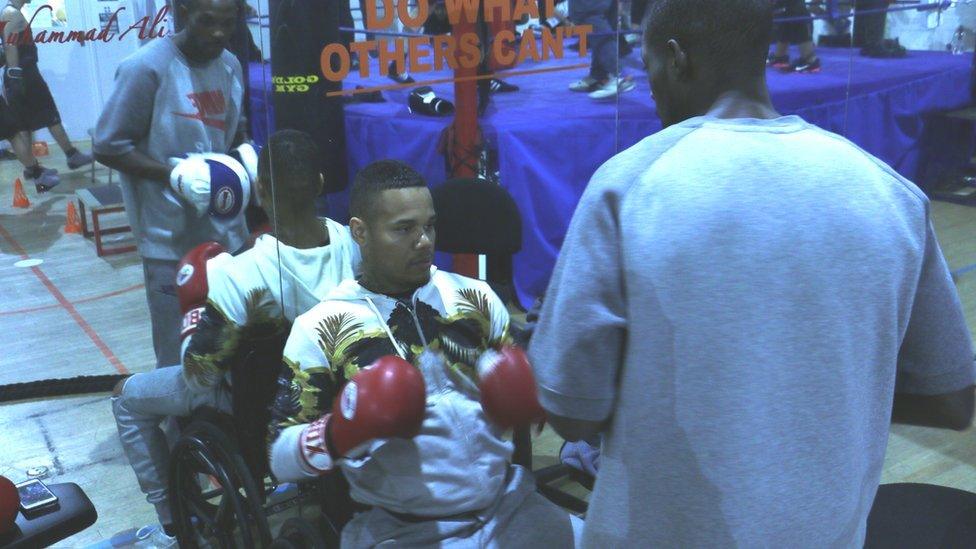
Aaron Gilbert hitting pads with a training partner
"Matching boxers, it's not like throwing a discuss or javelin in athletics," says Ron.
"We need to know if people have had similar experiences of combat sports in the past.
"We need to know their weights, we need to know their ages etc. so we're matching like with like."
Ron feels it's not just an English situation either, and thinks things need to change globally for disabled boxing to start getting its own classification.
"Disability is not something we've been at the forefront of in comparison with something like athletics. It's not going to happen overnight but it is certainly a priority."
For more stories like this one you can now download the BBC Newsbeat app straight to your device. For iOS go here, external. For Android go here, external.